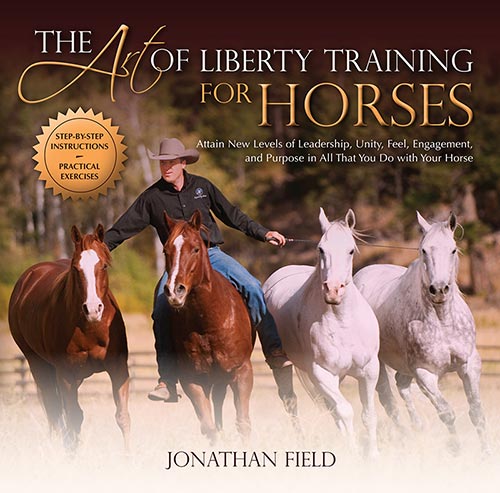
by Jonathan Field
Jonathan Field is known through the world for his liberty training and horsemanship skills. The subject of a documentary called “In Harmony with Horses” on Red Bull TV, his thoughtful approach helps people connect with and train horses of all breeds and disciplines.
Whether we want to play with a horse at liberty or develop a great riding horse, teaching him to be super confident and friendly with all kinds of objects, actions, and activities helps the relationship develop trust. A tame and trusting horse is one that has an open mind for you to teach. By nature, horses are skeptical. Knowing this, take time getting yours used to many different objects to build trust. Each object I train with has different texture, noise, and size. This builds confidence in my horse—he learns that there’s no need to worry about scary things when I’m there.
There are several keys to helping your horse be confident:
1. Let him move his feet. If he feels trapped when tied or confined, he may instinctively fight for freedom. Make sure while he moves it’s not moving his feet over you, though. Remember personal space! Even when he’s scared, that is still not up for a vote.
2. Don’t walk straight up to your horse. It’s predatory. Instead, approach him, then retreat, and repeat, getting incrementally closer each time.
3. Recognize worry. Find the edge of where he can tolerate something scary, then back off before he has to go into a self-preservation mode. As a predator species, it’s difficult for humans to back off and retreat. However, if you take the pressure away, your horse will likely allow a little more the next time. This builds confidence and curiosity, which tells you that you’re on the right track.
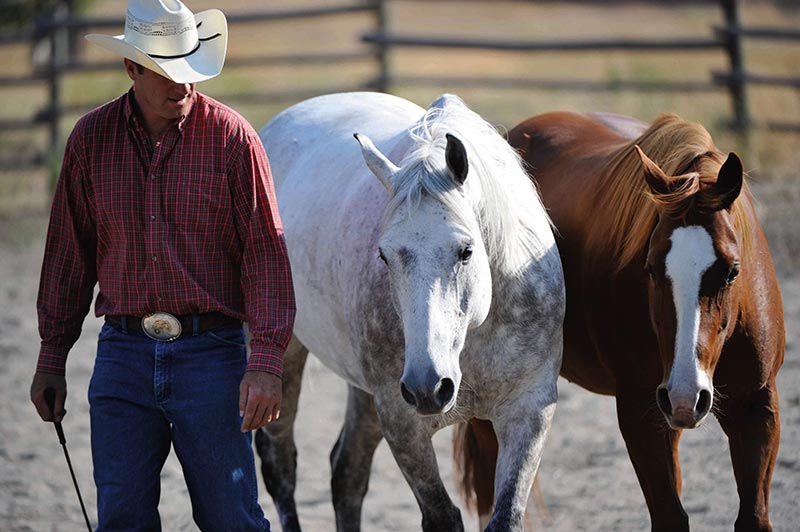
Staying calm when your horse gets scared is hard, but keeping yourself relaxed, with a friendly look and attitude, you will be able to help him through the challenge.
Don’t get frustrated and impatient. Even if he was fine with an object yesterday it doesn’t mean he will be today. Why? Because he’s a horse—a living, thinking creature! Horses will be different every day and sometimes, the same day.
Rhythm helps when approaching and retreating; it can build up a horse’s confidence quickly. To illustrate, imagine a horse that is afraid of branches waving in a breeze. Once he realizes none of them are out to get him or are in his path, he quickly categorizes that those branches are okay and can be ignored.
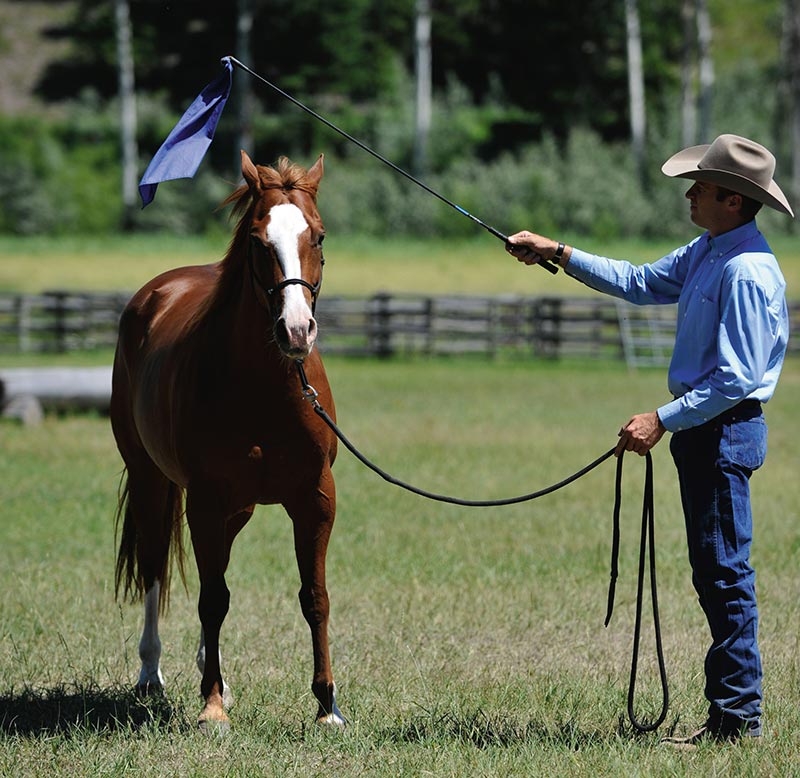
There are five stages a horse will go through if he is very scared of something. For an example, many horses are afraid of a flag on the end of a stick. Follow his thought progression from wanting nothing to do with the flag to being confident with a flag. If you use the principals of confidence building and desensitization as I have just described you will move in this positive direction.
The five fear instinct stages are:
1. Flight. “I’m out of here! You are not touching me with that flag! If you confine me, I’ll fight!”
2. Tolerate. “I don’t like this, but I’ll stand here for a moment while you bring it just an inch closer!”
3. Accept. “I’m not worried; it’s okay.”
4. Generalize. “Go ahead and rub me with that, I’m fine.” 5. Enjoy. “That flag sure keeps the flies away.”
With each one of these stages, look at the posture of your horse and observe his body: How wide are his eyes? How high is his head raised? Is he tense and looking ready for flight? Or is his head low and his eye soft?
I have never seen a horse go through all five steps at once. Instead, horses move through each stage in their own time. We need to recognize and reward every little improvement. Maybe today, you’ll just get him to sniff the scary object and call it a session because that’s all he could get done. Tomorrow he might give a sniff and then let you rub him on the shoulder with the object. By breaking things apart in the steps and allowing your horse time to think, you will be amazed at how confident he can become, and ultimately, trust that what you’re doing is safe and that the objects mean no harm.
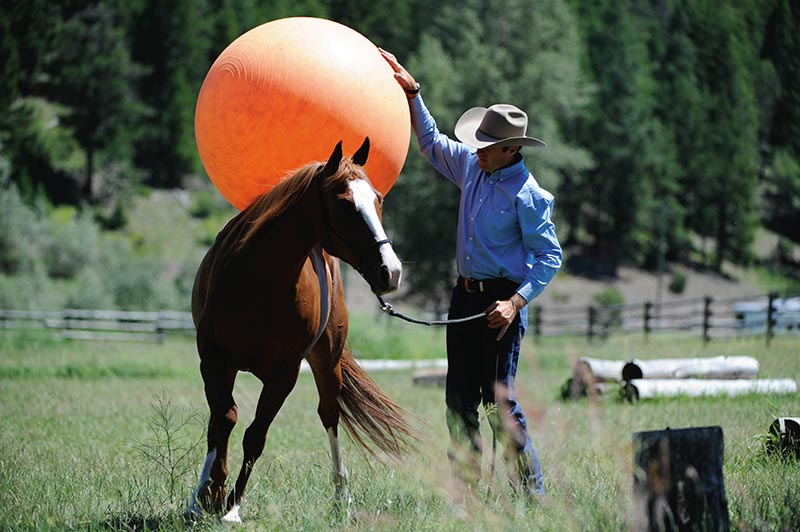
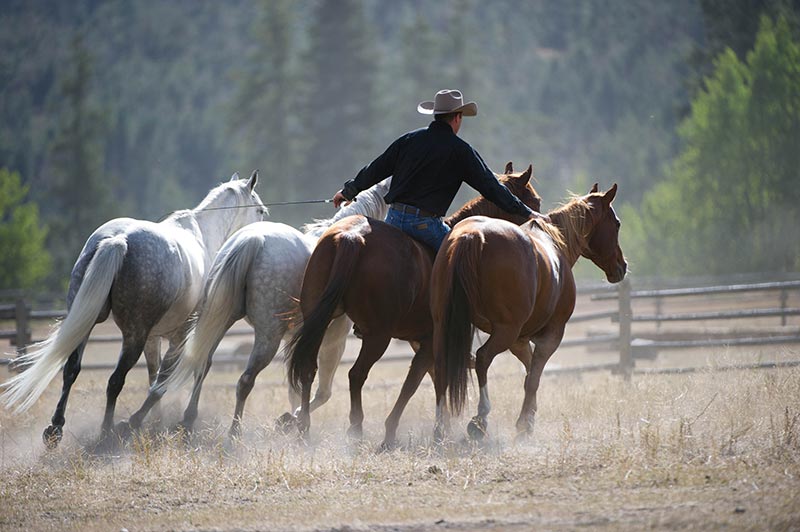
This excerpt from the book The Art of Liberty Training for Horses by Jonathan Field is reprinted with permission from Trafalgar Square Books (www.horseandriderbooks.com).
There are more interesting articles in our section on Health & Education.

































